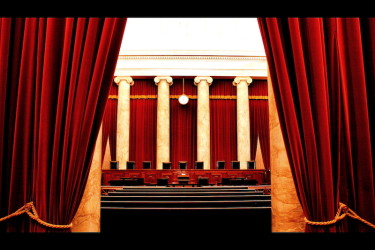
The U.S. Supreme Court announced on Friday, October 28 that it has agreed to take up the high profile transgender student bathroom case of Gloucester County School Board v. G.G. The High Court will consider whether a federal agency has the authority to interpret Title IX in a way that would force every public school to allow students to use the bathroom, shower and locker room that coordinates with their “gender identity” as opposed to their biological sex. The case deals with a female public school student in Virginia, Gavin Grimm, who wants to identify as a male and use male restrooms and locker rooms at school. Grimm rejected a proposed compromise by the school district to allow her to use single stall facilities, claiming the accommodation was discriminatory.
The Fourth Circuit Court of Appeals ruled in Grimm’s favor, but the U.S Supreme Court put that ruling on hold while deciding whether to take up the case. This will be the first time the U.S. Supreme Court has stepped into the highly charged issue at the center of North Carolina’s newly adopted law HB2.
The High Court has been operating with only 8 justices since the unexpected death of Justice Antonin Scalia back in February, and the likely outcome of such a case is uncertain. If the Supreme Court arrives at a split 4-4 decision on the case, the lower court ruling will stand and the Virginia school will be required to allow Grimm to use the bathroom and locker room of her choice. No date has been set for the Court to hear oral arguments.
According to court documents, Justices will specifically consider the issues of: “(1) Whether courts should extend deference to an unpublished agency letter that, among other things, does not carry the force of law and was adopted in the context of the very dispute in which deference is sought; and (2) whether, with or without deference to the agency, the Department of Education’s specific interpretation of Title IX and 34 C.F.R. § 106.33, which provides that a funding recipient providing sex-separated facilities must “generally treat transgender students consistent with their gender identity,” should be given effect.